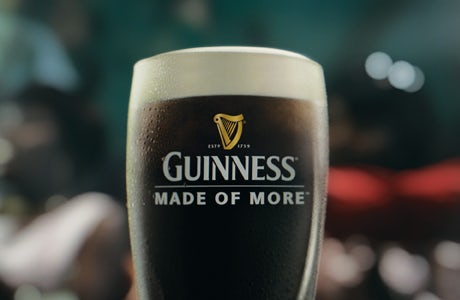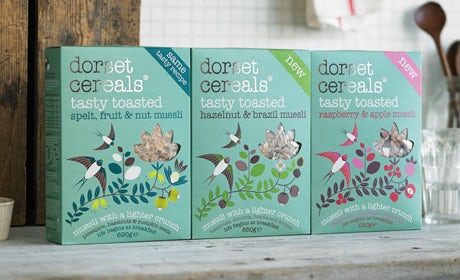The winning straplines that stand the test of time
Car rental brand Avis is resurrecting its famous 1960s ‘We try harder’ strapline for its first above-the-line campaign for almost 50 years. So what is it that makes a brand proposition stand the test of time and what do brands need to do to reinvent an existing slogan for the modern age?
Also in this story:
Creating a catchy, meaningful and memorable strapline that will stand the test of time is not easy. For every ‘Just do it’, ‘Think different’ and ‘A diamond is forever’, there is a graveyard full of nondescript and instantly forgettable slogans that failed to make an impact.
Now some brands are looking to revive their old straplines for the 21st century, most notably car rental firm Avis, which breathes new life into its iconic ‘We try harder’ strapline this week, working with agency VCCP to unveil its first TV campaign in the UK.
“‘We try harder’ is built into the DNA of the business and is ever present in every aspect of how our employees think about the customer, which is why it is still so relevant today,” says Troy Warfield, group commercial director of Avis Budget Group EMEA and one of Marketing Week’s Vision 100.
“A strapline has to be a statement of intent that underpins everything you do,” he advises. “‘We try harder’ is as much a part of the organisation’s ethos as it is a powerful strapline for the brand.”
Back in 1963, Avis’s former chief executive, Robert Townsend, took the brave step of acknowledging that the brand was not number one in the car rental category. So to win customers from leader Hertz, he vowed to always go the extra mile.
Working with agency DDB, Avis ran a series of ads during the 1960s that reinforced this promise, with one stating: “When you’re not the biggest in rent-a-cars, you have to try harder. We do. We’re only number two.”
A strapline has to be a statement of intent that underpins everything you do
The brand changed every facet of the business based on this premise, which helped it to increase market share from 11 per cent to 34 per cent over a four-year period.
Fifty years later, Avis is seeking again to shake up the industry, which Warfield admits “has lost its way”. The brand wants to put the “excitement, romance and adventure” back in to the market.
Warfield says: “We’re investing a lot across multiple assets of the brand to bring it back to life and while the strapline is part of that, it won’t make a difference if we don’t get the customer service, the fleet, locations and the rest of the business right.”
Avis has redeveloped its website, launched a new mobile and tablet app and reinvigorated its customer loyalty programme, so the brand is now keen to get back on consumers’ radar. While ‘We try harder’ remains the brand’s mission statement, the new campaign invites consumers to ‘Unlock the world’ and aims to highlight the array of experiences that car hire can enable (see ‘Avis is reborn in the UK’ below).
Golden oldies

Avis is not alone in resurrecting a long-standing strapline. After a gap of almost two decades, United Airlines is again urging travellers to ‘Fly the friendly skies’ after investing in its global route network, aircraft, customer service and digital channels to make them more user-friendly.
Meanwhile Iceland has decided to bring back its tagline ‘That’s why mums go to Iceland’ after a two-year gap. “We decided to revive our classic strapline because we own it, we’re proud of it and we know it resonates with our customers and the wider public,” says Nick Canning, Iceland’s executive director for people and customers.
To update the slogan and give it a “playful and modern twist”, the brand has supplanted the word ‘mum’ in a number of ads, using instead ‘pizza lovers’, ‘fish finger fanatics’ and ‘barbecuing dads’ to give them broader appeal. And when it does employ ‘mum’, Canning explains that “we mean the food provider at the heart of every household, who can just as easily be a dad or indeed a single person living on their own”.
Meanwhile in the US, Burger King has rehashed its classic ‘Have it your way’ strapline and is telling customers to ‘Be your way’, which Axel Schwan, executive vice-president and global chief marketing officer, believes is “a better reflection of who we are and how we want to interact with our guests”.
The burger brand is using the slogan – which some regard as grammatically awkward – across TV, digital and in-store activity, and plans to roll it out on a global scale to align its message and connect with consumers more consistently.
Car brand BMW’s grammar was also questioned when schoolboy Albert Gifford complained about its incorrect use of the word ‘bad’ in an ad for its 2 Series Coupé. The ad ends with the slogan ‘It bites as bad as it barks’, but the 15-year-old argued that bad is not an adverb. Gifford previously took on Tesco over its use of the phrase ‘most tastiest’ on juice cartons, forcing the supermarket giant to change its packaging.
If it ain’t broke…
While some brands choose to modernise or update their strapline, others see no need to mess with a good thing – so long as it remains culturally relevant. Luxury jeweller De Beers has used the strapline ‘A diamond is forever’ for almost 70 years but brand director Jennie Farmer sees no immediate need to change or refresh it.
“Just as diamonds themselves are timeless, ‘A diamond is forever’ continues to connect in a meaningful way,” she says. “It is as relevant to people now as it was when it was created in 1947… and there are no plans to update it.”
De Beers arguably introduced the idea that engagement rings should feature diamonds; prior to the line’s introduction in 1947 they were not regarded as the traditional stone for such items. It helps, of course, that the line was immortalised in Shirley Bassey’s 1971 song Diamonds Are Forever from the James Bond film of the same name.
Another familiar and often parodied strapline is Dogs Trust’s ‘A dog is for life, not just for Christmas’. Chief executive Clarissa Baldwin, who came up with the line decades ago when she led the PR team, says “it would be a mistake” to replace such a well-known line.
However, she acknowledges: “After 35 years, one has to be quite innovative to keep it going… You have to look at what opportunities there might be to raise its profile in lots of marketplaces and among different age groups.
For its 35th anniversary, Dogs Trust worked with celebrities including Twiggy, Leona Lewis and Novak Djokovic on the #PressPaws campaign and sought to engage a younger audience by teaming up with make-up brand Models Own for the ‘Golden Maniclaws’ nail polish. The charity has looked also at extending the message beyond the Christmas period to make it relevant all year round, reinforcing the sentiment on Valentine’s Day and other regular gift-giving occasions.
Time marches on

But no matter how iconic or well loved a tagline is, it may not be appropriate to keep using it through the years. While ‘A Mars a day helps you work, rest and play’ still sounds catchy, it is not to be advised as part of a healthy diet and is possibly why the brand revived just the ‘Work, rest and play’ part when it brought it back in 2008 after a 10-year gap.
And although iconic, the ‘Guinness is good for you’ slogan would likely be viewed unfavourably by today’s health-obsessed and drink-aware society. “It hasn’t been used for some time now but when it was in use the cultural context was very different,” says Grainne Wafer, global strategy and communications director at Guinness.
Claims of therapeutic benefits were once common in many categories. Guinness used to be dispensed by medics after people had donated blood so there was a long association with good health, which at the time felt appropriate and relevant but clearly would not be now. “We have a completely different view of alcohol and how we consume it today,” says Wafer.
She adds that global relevance is an additional consideration in today’s market. “We live in a borderless age where work travels, so having a line for a global brand that works in multiple geographies is critical.”
However, she acknowledges that although its ‘Good things come to those who wait’ line is iconic, it only makes sense for the draught variant of Guinness, and was dropped in 2007.
“Half of our volume sits within our Foreign Extra Stout variant so although the ‘Good things’ part makes sense, you don’t have the same waiting that you do with the draught variant.” Guinness’s current tagline, ‘Made of more’, works across both variants and has global appeal, she says.
We see the strapline as the clothes the brand wants to be seen in
The importance of having a strapline that travels well should not be underestimated. Electrolux, KFC and Pepsi are just some of the brands that have been left red-faced by taglines that were lost in translation (see box, below).
Meanwhile, as part of its effort to become more globally relevant, holiday operator Thomas Cook has introduced a new visual identity and the simpler ‘Let’s go’ strapline, which replaces its long-standing ‘Don’t just book it, Thomas Cook it’ line.
“I can understand why Thomas Cook has done this – people don’t say ‘Let’s Thomas Cook it’. A strapline has to be true to the brand but more importantly it must chime with the consumer so there is an emotional response,” says Mandy Cooper, head of marketing at Dorset Cereals.
The breakfast cereal maker itself recently introduced a new strapline after rebranding and reboxing its products, and is in the process of being acquired by Associated British Foods (ABF). “‘Life begins at breakfast’ is a truism and a call to action,” she says. “We know our core customers value breakfast and it also speaks to a potential market that is very much about health, not wealth.”
Dorset Cereals previously used the line ‘Honest, tasty and real’, which embodies the brand’s values and still appears on some of its digital assets.
“Our values are right at the core of everything we do,” says Cooper. “We are absolutely honest about what we put in our products. It goes without saying that they have to be tasty; and they have to be real, so we would never use anything that you wouldn’t find in a normal kitchen cupboard.
“The two messages can sit alongside each other but ‘Life begins at breakfast’ is the mantra that goes on every pack.”
It is a line that may also work internationally, adds Cooper, “as it is a truism right across the world”. It should stand the business in good stead when the sale to ABF goes through as one of its ambitions is to accelerate overseas development.
Fresh identity

But when a brand is acquired, often the new owner wants to carve out a fresh identity for it, as was the case at Mizkan Europe, which took on pickles brand Haywards in 2012 and did a lot of work to understand the category.
Despite growing 6.6 per cent in value, 5.4 per cent in volume and 6.1 per cent in units, according to industry data from IRI in April, Haywards has only 21 per cent brand awareness among consumers, says Lorna Kimberley, head of marketing at Mizkan Europe.
She says: “We concluded that the aisle was unloved, unattractive to consumers and one they seldom went down. Our vision was to liven up the category by thinking about pickled vegetables in a different way to make a new, younger audience want to discover it.”
Using the ‘Liven up your food’ strapline, Mizkan has created a fresh image for the brand and, to help it reach this target audience, sponsors the Oddballs sports column in the Metro free newspaper. “We see the strapline as the clothes that the brand wants to be seen in… For us it is about associating the language used to describe our product with the tastes and sensations it provokes,” says Kimberley.
Whether a strapline is new or old, long or short, it must be true to the brand and resonate with consumers. As Guinness’s Wafer puts it: “You have to express the timeless values and characteristics of a brand but in a way that is timely and has real cultural relevance.”
Lost in translation
Pepsi
‘Come alive with the Pepsi generation’ might have revved up English-speaking consumers in the 1960s but when the slogan was mistranslated in China as ‘Pepsi brings your ancestors back from the dead’, the outcome was altogether different.
KFC
Chinese consumers were in for another shock when fast-food chain KFC entered the market in 1987 and told punters ‘We’ll eat your fingers off’ – a slightly more aggressive version of its classic ‘Finger lickin’ good’ tagline.
Parker Pens
When Parker Pens tried to enter the Mexican market, its strapline ‘It won’t leak in your pocket and embarrass you’ was mistranslated as ‘It won’t leak in your pocket and make you pregnant’ owing to confusion over the Spanish word ‘embarazar’, which means pregnant.
Electrolux
The Swedish vacuum-cleaner brand was unaware that sucking is not always a good thing when it targeted US consumers with the line ‘Nothing sucks like an Electrolux’.
Ford
The Ford Pinto did not go down well with Brazilian drivers in the 1970s because, unbeknown to the brand, ‘pinto’ is slang for ‘small penis’ in the Portuguese-speaking country.
General Motors
The car giant had problems when it tried to entice South American consumers to buy the Chevy Nova because ‘no va’ means ‘not going’ in Spanish.
Avis revives a classic
https://www.youtube.com/watch?v=qQlSNYMTEhE
Car rental firm Avis hopes to inject new life into the brand through its ‘Unlock the world’ campaign, which revives the classic ‘We try harder’ strapline by giving it new meaning for 2014. The brand will appear on TV screens in the UK and across Europe for the first time and it has been almost 50 years since the famous slogan was used in any advertising in the region.
“We want to put the excitement, romance and adventure back into car rental because it has lost a bit of its magic,” says global commercial director Troy Warfield.
The TV campaign kicks off in the UK during ITV’s coverage of England’s World Cup match against Costa Rica tonight (24 June), which will be seen by an estimated 14 million people. “We think if a classic brand is going to be reborn, we need to put it on the biggest stage that there is – and at the moment that is the World Cup,” says Warfield.
The ad begins with a man using a key to unlock a car, symbolising the world of opportunities that car hire offers. All the vehicles in the car park flash their lights in unison, which begins a chain reaction for an array of cars in various locations. The black-and-white ad is set to ‘Let’s go fly a kite’ from the film Mary Poppins, which Warfield says “nods to the premium and historic nature of the brand”. Featured cars include a VW Golf, a Porsche 911 and a Mercedes C200, which he hopes will entice driving enthusiasts and encourage consumers to reappraise the brand. “We have kept the message as simple as possible to talk about the fact that as someone experiences the brand, they get to unlock this world of great cars that can take them to great places,” says Warfield.
Avis carried out a detailed segmentation of the market that identified two clear types of consumer: the ‘motor enthusiast’ who loves great cars and the driving experience; and the ‘premium service seeker’ who demands a high level of assistance, which drives engagement and long-term advocacy. While the brand hopes to attract enthusiasts with its glossy TV ad, it aims to speak to the premium service seekers through print, using a conversational style to relay its proof points and specialist services.
“We want to stand out in terms of our premium nature,” says Warfield. “Avis is one of the world’s most recognised travel brands and we want to put it back on the map.”
How to come up with a winning strapline

“The first time Guinness’s ‘Good for you’ strapline was presented to the board, it was nearly rejected because they thought it was too simple. But that is a good lesson because the simplest lines are usually the ones that are most powerful and enduring. A good tagline should have the ability to summate the brand’s values and product truths.” Grainne Wafer, Guinness
“The people working for you are your biggest brand advocates so if it works for them, it will normally work for consumers too.” Mandy Cooper, Dorset Cereals
“A strapline should be the end of the creative journey that a brand and ad agency team go on, after reviewing who the target audience is, insights into the consumer, the brand’s ‘reason to be’ and its values and personality.” Lorna Kimberley, Mizkan Europe
“It needs to be simple, strike a chord with people and be built from the promise of your brand.” Jennie Farmer, De Beers







